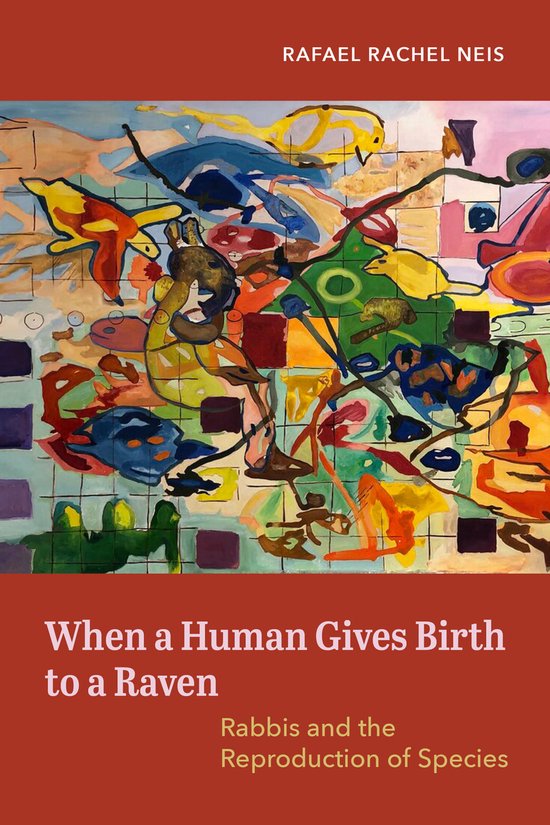
When a Human Gives Birth to a Raven
“When a Human Gives Birth to a Raven is an original, highly innovative, and groundbreaking study of ideas of generation and reproduction of species in rabbinic literature. Neis’ analyses open a window to a much more complex and surprising intellectual world than the rabbis usually get credit for. This book is provocative, thoughtful, and timely.”—Mira Balberg, Professor of History and Endowed Chair in Ancient Jewish Civilization, University of California, San Diego
“A trailblazing work that will introduce a new sophisticated discourse in the study of rabbinic literature. Neis is at home in the classical rabbinic texts, with their philological complexity and their immense width, encompassing half a millennium and diverse historical circumstances.”—Galit Hasan-Rokem, Professor Emerita of Hebrew Literature and Folklore Studies, Hebrew University of Jerusalem
A free ebook version of this title is available through Luminos, University of California Press’s Open Access publishing program. Visit www.luminosoa.org to learn more.
This book investigates rabbinic treatises relating to animals, humans, and other life-forms. Through an original analysis of creaturely generation and species classification by late ancient Palestinian rabbis and other thinkers in the Roman Empire, Rafael Rachel Neis shows how rabbis blurred the lines between humans and other beings, even as they were intent on classifying creatures and tracing the contours of what it means to be human. Recognizing that life proliferates by mechanisms beyond sexual copulation between two heterosexual “male” and “female” individuals of the same species, the rabbis proposed intricate alternatives. In parsing a variety of creatures, they considered overlaps and resemblances across seemingly distinct species, upsetting in turn unmitigated claims of human distinctiveness. When a Human Gives Birth to a Raven enters conversations in animal studies, queer theory, trans theory, and feminist science studies to provincialize sacrosanct ideals of reproduction in favor of a broader range that spans generation, kinship, and species. The book thereby offers powerful historical alternatives to the paradigms associated with so-called traditional ideas.
“A trailblazing work that will introduce a new sophisticated discourse in the study of rabbinic literature. Neis is at home in the classical rabbinic texts, with their philological complexity and their immense width, encompassing half a millennium and diverse historical circumstances.”—Galit Hasan-Rokem, Professor Emerita of Hebrew Literature and Folklore Studies, Hebrew University of Jerusalem
A free ebook version of this title is available through Luminos, University of California Press’s Open Access publishing program. Visit www.luminosoa.org to learn more.
This book investigates rabbinic treatises relating to animals, humans, and other life-forms. Through an original analysis of creaturely generation and species classification by late ancient Palestinian rabbis and other thinkers in the Roman Empire, Rafael Rachel Neis shows how rabbis blurred the lines between humans and other beings, even as they were intent on classifying creatures and tracing the contours of what it means to be human. Recognizing that life proliferates by mechanisms beyond sexual copulation between two heterosexual “male” and “female” individuals of the same species, the rabbis proposed intricate alternatives. In parsing a variety of creatures, they considered overlaps and resemblances across seemingly distinct species, upsetting in turn unmitigated claims of human distinctiveness. When a Human Gives Birth to a Raven enters conversations in animal studies, queer theory, trans theory, and feminist science studies to provincialize sacrosanct ideals of reproduction in favor of a broader range that spans generation, kinship, and species. The book thereby offers powerful historical alternatives to the paradigms associated with so-called traditional ideas.
| Auteur | | Rafael Rachel Neis |
| Taal | | Engels |
| Type | | Paperback |
| Categorie | | Religie, Spiritualiteit & Filosofie |